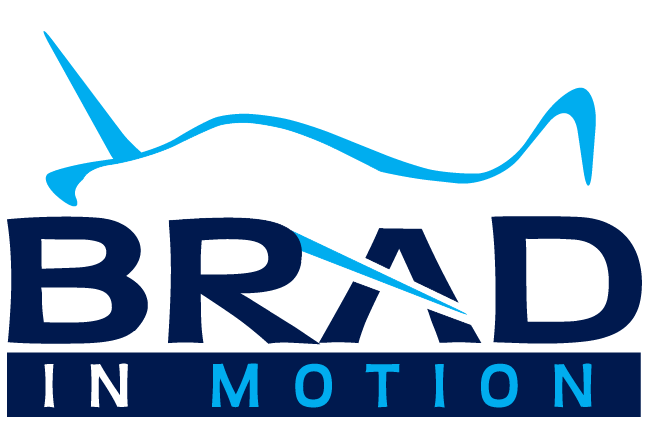Brad’s Testimony Before U.S. Congress – Aviation User Fees
I recently had the honor of testifying before the U.S. Congress Committee on Small Business regarding aviation user fees. The hearing was entitled, User Fees in the Aviation Industry: Turbulence Ahead, and took place on Wednesday, September 12, 2012 in Washington, DC. This hearing was initiated by Congressman Sam Graves (R-MO), who is Chairman of the committee. The purpose of this hearing was to discuss the impact on small businesses of an additional $100 per flight fee proposed by the Obama administration. I was speaking to the committee on behalf of the Airplane Owners and Pilots Association (AOPA).
My testimony focused on the important role general aviation has played to help build my business, increase our sales despite a sluggish economy, and hire additional employees. I own and operate a Turbo Cirrus SR22 Aircraft which I can honestly say is one of my absolute best employees. It allows myself and my staff members to travel quickly, safely and efficiently to customer locations, industry events and to manufacturing partner facilities. I’ve flown my Cirrus to 49 states in pursuit of new business and to nurture and grow existing relationships successfully. We simply could not do what we do without our airplane.
The current system of taxation is based upon fuel consumption, ie: each gallon of fuel purchased has a federal excise tax included, which congress has the ability to adjust if necessary. This is a straightforward taxation method (perhaps the most simple and effective in our government), wherein those who fly more tend to burn more fuel and therefore pay more taxes. I fly a lot, a whole lot. I fly far (nationwide), I burn a lot of fuel, and I pay a lot more taxes than an individual who’s making small regional flights burning less fuel. That makes sense – I’m going further distances and using more services, therefore I should be paying more into the system and am happy to do so. The system works, it’s not broken, so this feels very much like a solution looking for a problem to solve.
The Obama administration has proposed that each flight should be charged an additional $100 user fee on top of the current excise fuel tax. This makes no sense to me as there’s no direct correlation between usage and the proposed new taxation method. There’s been a position among some proponents that this is “fair” because everyone pays the same additional equal amount. Each aircraft paying an equal amount however is not “fair”. The aviation infrastructure was built for the commercial airlines, not for the general aviation sector. For instance, when I landed my Cirrus at Washington’s Dulles International Airport to attend this hearing, I landed on an 11,500 foot runway that was 150 feet wide and several feet deep of concrete. This runway wasn’t built for my Cirrus or many other general aviation planes, it was built to handle heavy airliners. I needed only a fraction of the available runway (length, width and depth) to land safely. Saying that the cost of that runway (that’s part of our aviation infrastructure) should be split “fairly” and “equally” between both of us would be like going out to dinner and ordering a salad while your friend gets a five course meal then suggests it’s “fair” and “equal” to split the check down the middle. It just doesn’t make sense.
In addition to the inequality I demonstrated above, another important factor to recognize is the massive infrastructure that would need to be put into place in the government to administer and collect from a user fee based system. We’d effectively create a whole new bureaucracy, aptly referred to by many in the aviation industry to be named the SKY-R-S. This new administration could raise fees (taxes) at any time without congressional approval which is a very dangerous proposition. Given the vast amount of resources and personnel needed for such a program, it’s highly probably an increase in fees would be necessary just to cover this additional overhead.
Equally troublesome is the thought of having to dedicate additional resources and manpower within my own small business for the accounting function of auditing, paying, and handling these fees. This money would add expense (beyond the flat $100 fee) to our operations which could better be spent growing our business and helping our customers grow their businesses. There is no need to add this additional burden to businesses who are already needing to be laser focused on efficiencies to compete effectively.
I invite you to watch the video presentation of the full hearing for a better understanding of this issue and all of the various points presented. I was truly honored to be among an esteemed panel of individuals, most notably Martha King of King Schools, who did a phenomenal job expressing her position on behalf of the NBAA. (As a side note, both John and Martha King are incredibly warm and wonderful people. I can’t express how much I enjoyed getting to know them and was honored to testify along with Martha). As you watch the video during the question and answer period, you may notice there was a brief tense moment between myself and the ranking Congresswoman on the committee. Due to the phrasing of her question, I simply could not allow myself to advocate writing a “blank check” proclaiming that we should should raise aviation taxes. I feel this is a more complex issue (including the numerous reasons I stated above) and that it’s necessary to look into the details and implications further. I was clear in my answer however that if congress votes to increase aviation taxes, I would prefer for it to be done in the form of the existing excise fuel tax method instead of by creating new user fees. While it was slightly uncomfortable to be in disagreement, I’m glad that I chose to stand up for my beliefs and not agree with a position I did not fully support.
I hope that each person reading this narrative will recognize that you too can make a difference when it comes to government and legislation. I’m a normal guy who operates a small business and uses a general aviation aircraft to grow my business. I’m not an aviation legend or a household name, but I stepped forward to support my beliefs and genuinely feel like I made a difference. I invite each of you to do the same, contact your Congressmen and Senators. Express your concern and let them hear your story of how aviation user fees will affect your business. Together, we can make a difference and get user fees off the table once and for good.
Lastly, I would like to give a very special thanks to the Airplane Owners and Pilots Association (AOPA) as well as to the National Business Aviation Association (NBAA). Both of these organizations work diligently on behalf of the general aviation industry and do a phenominal job. I’ve gotten to know many of the staff members and leaders from both organizations and can adamantly say they are among the best, brightest and most dedicated people I’ve ever known. They care about all interests in general aviation, both big and small, and I’m honored to be a member of both organizations. I would also like to thank Congressman Sam Graves for initiating this hearing, along with the respected Congressional leaders who attended and participated in it. Their time and energy invested was greatly appreciated and I was honored to have the opportunity to speak before them regarding this important issue.
Links to More Information and Resources:
User Fees in the Aviation Industry: Turbulence Ahead – Hearing Information
User Fees in the Aviation Industry: Turbulence Ahead – Brad Pierce – Testimony
User Fees in the Aviation Industry: Turbulence Ahead – Video of Hearing



